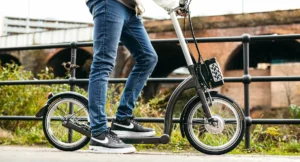As the popularity of scooters continues to soar, riders are becoming more discerning about the components that make up their trusty two-wheelers.
Among these components, the scooter deck stands out as a critical element that directly influences the rider’s experience.
In this article, we’ll delve into the world of scooter decks, examining their significance, materials, and factors to consider when choosing the perfect deck for your scooter.
Importance of the Scooter Deck
- Rider Stability: The scooter deck is the platform where the rider stands, making it a crucial factor in maintaining stability. A well-designed deck ensures a comfortable and secure footing, promoting balance during rides.
- Durability: Enduring the weight and impact of the rider, the scooter deck needs to be constructed from durable materials. A robust deck can withstand the rigors of everyday use, ensuring longevity and reliability.
- Weight Distribution: The design and material of the deck play a role in distributing the rider’s weight appropriately. An evenly distributed weight helps enhance control and maneuverability, contributing to a smoother ride.
- Trick Performance: For riders who enjoy performing tricks and stunts, the scooter deck becomes a crucial aspect of their performance. Decks designed for tricks often have specific features like reinforced edges and concave designs to facilitate precise control.
Choosing the Right Scooter Deck
- Material: Scooter decks are commonly crafted from aluminum, steel, or composite materials. Aluminum decks are lightweight and offer a good balance of strength, making them popular among riders. Steel decks provide robustness but are heavier, while composite decks can offer a blend of durability and flexibility.
- Length and Width: The size of the deck directly affects the rider’s comfort and control. Consider your shoe size and riding style when selecting the length and width of the deck. A wider deck provides more space for your feet, enhancing stability.
- Concavity: The concavity or curvature of the deck can influence your control over the scooter. Some riders prefer a flat deck for stability, while others opt for a concave design, which allows for better control during tricks and maneuvers.
- Brake Compatibility: Check if the deck is compatible with the type of brake you prefer. Some decks come with integrated brakes, while others may require an external brake system.
Conclusion
In the dynamic world of scooters, the deck is the unsung hero that forms the very foundation of your riding experience.
By understanding the importance of materials, size, and design features, you can make an informed decision when choosing the perfect scooter deck.
Whether you’re cruising through the streets or mastering tricks at the skatepark, a well-suited deck is key to unlocking the full potential of your scooter.



